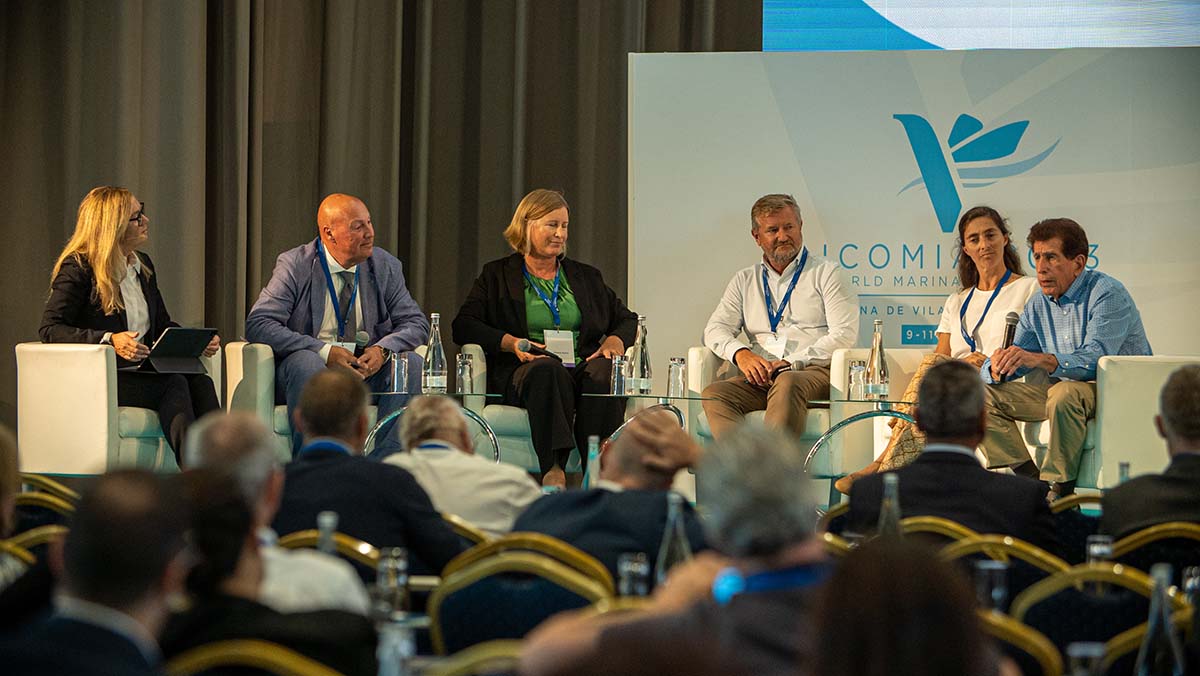
Are Some Marinas Their Own Worst Enemy?
Published on February 27, 2024In 1624 John Dunne famously wrote, “No man is an island, entire of itself.” And while there are plenty of marinas on islands, and with apologies to Mr. Dunne: ‘No marina is an island, entire of itself. Every marina is a piece of the continent, a part of the main.’
I have never quite understood the contrast between the general camaraderie of boaters, and the frequently encountered individualism of many, though certainly not all, marina owners/operators. It does seem at times that some marinas want to be islands, or even walled fortress islands, intent on keeping to themselves, and/or, in some cases, warring with other facilities in the area. Unfortunately, neither of these postures tend to benefit the facility, and they do not benefit the industry, which further hurts the individual facility. Yes, some marinas really can be their own worst enemy.
On the “warring” front, we have seen too many situations where one marina will actively recruit a key employee or employees from a neighboring facility. Nothing can brew a feud quite like that. I appreciate that, particularly of late, it can be awfully hard to find the right people with the right skills, but it’s just not worth the long-term consequences. Once a fight breaks out, it’s difficult to put the gloves down.
We have also seen too many situations where one marina is proposing some renovation or expansion, or where a new marina is proposed nearby other marinas, and instead of supporting the new programs, there are negative reactions from the neighboring marina(s), whether in the form of behind the scenes whispering, vocal opposition or bringing in the legal team and consultants. Now, if there is a legitimate gripe, like interfering with your littoral rights, and the proposer is not reasonable, then bring in the cavalry. But too often the opposition is based on a fear of losing customers, cutting into one’s niche, or just not wanting to accept competition or change.
Customer Retention
While no one wants to lose customers, there are two types of losses: losing those that one might welcome their leaving and those that one really does not want to lose. When the latter happens, it should act as a wakeup call. Long-term relationships with good clients are the goal. If they leave, one should stop and think as to what the real reasons were for their leaving. If it is strictly due to pricing, then perhaps that is not the customer you want after all. But if it is due to functionality, service, amenities or other substantive issues, one may want to seriously consider what the issues are, and what one might be able to do to solve them.
On the “keeping to themselves” front, even if in peaceful coexistence, that just isn’t going to work for the long-term moving forward, and in some ways is why we are where we are on issues such as staffing and regulations. Marinas need to support each other, and the overall industry, because at one time or another, each will need support for proposals to change, improve and/or maintain the facility, to promote boating and/or the facility, to find solutions to common problems, and so on.
There are numerous projects that almost every marina will face – whether it is to add a new building, replace aging docks or infrastructure, reconfigure and expand and/or dredge the facility, all of which will require regulatory approvals from local, state and/or federal levels. At almost any time there will be those who will question or oppose the desired project, whether in writing or public hearings. Having support can be very meaningful, educational and informative, especially when coming from a competitor.
Dealing with Regulations
In the same vein, there are numerous regulations and for decades I have thought that it could not get any worse for the industry. Unfortunately, the regulations, and, worse, the unpromulgated concerns du jour, keep coming down the pike – sometimes in slow motion and sometimes at galloping speeds. Many times, one does not even know about them until one wants to undertake a project and files applications for approval.

The regulatory world is also getting increasingly programmatically oriented, with “one size fits all” approaches. Many of the agencies have well-meaning individuals who want to save the world (not always sure from what) but without any real-world experience. I keep saying that every site is site specific, and that generic approaches may not fit the specific site. But unfortunately, there are many in regulatory positions that simply say that the alternative is not to undertake the project … “no one is forcing you to undertake the project.” Often that is a myopic, disingenuous, and regressive attitude and approach.
For many years, our senior environmental associate was the former director of marine resources for the NYS Department of Environmental Conservation and a founding member of the Environmental Defense Fund. He was continually amazed at how the programs and rules he had helped initiate for NYS were subsequently distorted and reinterpreted into positions he could not recognize or that simply did not make sense.
Most of the regulations have a meaningful thought behind their creation. But the journey from conception, to written rules, to actual implementation, can most often take unexpected turns. It is something like seeking to create a thoroughbred racehorse, and in the process of going through the gauntlet of public review and committee meetings and numerous inputs with weird and way-out scenarios, one ends up with a water buffalo – obviously missing the original objective. Making matters worse is that most, if not all, the input is typically from non-industry individuals and organizations.
For whatever the reason, the industry as whole has tended to be disassociated with or just reactive to the process as opposed to being proactive. Every marina owner or manager should be involved, at least on the local level, in being part of the process rather than fighting the process. Going to meetings, being on the harbor commission, planning or other review boards, can be a major contribution. Most local boards and regulators know very little about the specifics of the industry and what is needed to make it successful. Educating them from the inside is meaningful and can yield major benefits.
On one of the many committees that I serve on, in this case advisory on a regional waterway management plan, the topic of dredging periodically comes up. There is no other word that can ignite emotions faster than dredging. It took a long time to educate the naysayers on the committee to the realities of the issue. Every time there is a major rain or other storm, the shallow harbor bottom materials get disturbed, and the “toxic material” gets redistributed. We swim, fish, and recreate in these shallow waters, but dare to try to remove those materials and all sorts of alarm bells ring. Relocating these materials to deep potholes and covering them when needed with clean materials has decades of scientific and site-specific studies to show how environmentally desirable such an approach is, but it is becoming more and more challenging to undertake.
It doesn’t help that agencies have phrases in their laws like “dump” or “dredge spoils” that automatically set the stage for difficulty in trying to manage the removal/relocation of the bottom materials so as to allow for safe navigation of boats.
And where does this toxic material come from? In actuality, very little is from the marinas. The largest single contributor to pollution of our waters, and consequently the sediments, comes from agriculture, and the second from government stormwater runoff. Yet very little is really undertaken to reverse these contributors and rectify the egregious behavior. What I find surprising is that many of the critics from government positions seem unwilling to undertake steps to rectify the big problems – but are also in the front lines of singling out marinas. Why? Because they are very visible and are viewed as being only for the wealthy. To overcome these mindsets, the industry must get more involved – not only on the local level but on the state and federal levels.
Importance of Associations

To this end marina associations can be very important – but, unfortunately, most have found themselves in the position of only getting involved on a reactive as opposed to a proactive basis. This is largely due to staffing costs and not having enough time or money to be proactive. To correct this they need more support, pressure and, above all, participation from all of us in the industry.
There also is a real need for additional staff and management training opportunities. Many associations have made quite a bit of progress on this front, particularly on the management side, but clearly there is a greater need, particularly on the staff and trades side. With a bigger labor pool, one doesn’t have to contemplate stealing your neighboring facility’s staff.
The bottom line is that we need all of us to act individually as well as collectively through associations. Individually through the local scene – being part of the process as opposed to just reacting from the outside. Individually we all can have a meaningful and positive effect – not only in just educating others but in bringing about needed support to the industry and making proposals more proactive rather than regressive for the industry, whether it is from the zoning or planning boards or the local legislative bodies. For those who say they do not have the time, I would suggest that it really should be one of your highest priorities. And yes, individuals getting involved can have major proactive benefits to the industry.
To those who only contribute to PACs, I suggest that while money supporting the industry is important, it is second place to active support. To the various associations, I would suggest reorientation of priorities to be more proactive – listing the priorities, understanding when program reauthorizations will be coming up, and seeking to be part of the penning process rather than being reactive and trying to reverse the course of various punitive regulations and laws. And yes, there have over the years been major benefits to the industry by both individuals and associations acting on a proactive basis, but those efforts have tended to be more the exception than the rule. Being proactive early on is needed for the future of the industry.
At the closing of this famous passage from Mr. Dunne he strikes a darker, more foreboding tone, “…never send to know for whom the bell tolls, it tolls for thee.” But if we get off our islands, support each other and work together, we can change “for whom the bell tolls” to the ringing in of a bright future!
Dan Natchez, CMP, is president of DANIEL S. NATCHEZ and ASSOCIATES Inc. He can be contacted by phone at 914-698-5678, by email at dan.n@dsnainc.com or online at www.dsnainc.com.
| Categories | |
| Tags |





